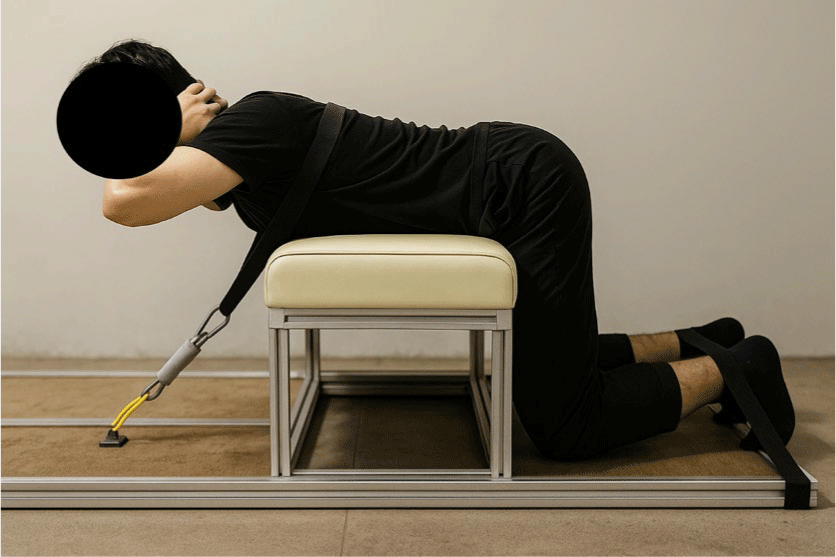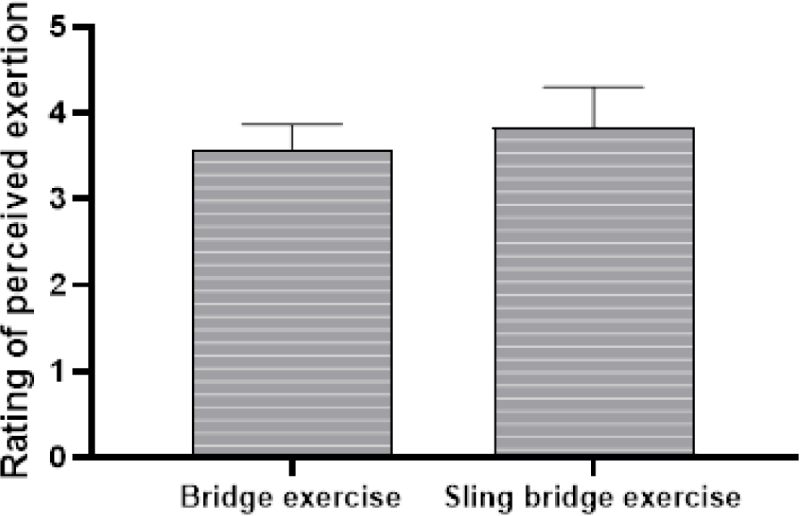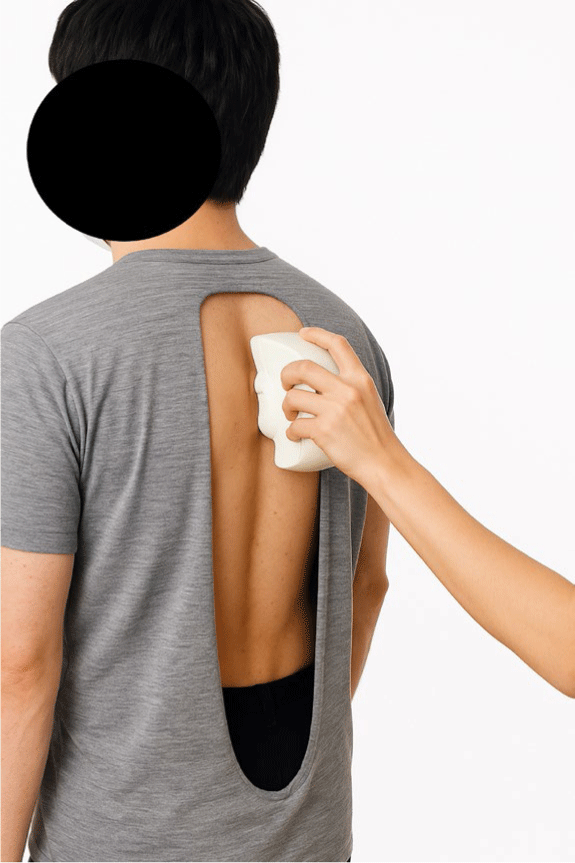INTRODUCTION
Sleep is a vital component of human health that influences numerous physiological and psychological processes. Specifically, sleep is important for optimal cognitive functioning, emotional regulation, and physical health.1 Despite their importance, sleep disorders and inadequate sleep duration are prevalent and pose significant risks to the overall well-being.2 In modern society, lifestyle changes such as increased screen time, work-related stress, and irregular schedules have contributed to widespread sleep insufficiency, making this issue even more relevant.3,4 Sleep insufficiency and poor sleep quality have been increasingly recognized as contributing factors to a range of adverse health outcomes, including metabolic dysfunction, cardiovascular morbidity, and psychiatric disorders.5,6 Emerging evidence also suggests that poor sleep may impair neuromuscular recovery, increase systemic inflammation, and alter the autonomic nervous system balance, further compounding its impact on health.7-9
Physical health is also closely associated with sleep quality.10 Kyphosis, the forward curvature of the spine commonly observed in older adults, can significantly affect mobility and quality of life.11 The degree of kyphosis can influence an individual’s ability to perform daily activities, potentially leading to increased dependency and reduced physical function.12 Muscle strength is another critical indicator of physical health, indicating an individual’s ability to maintain functional independence.13 Poor muscle strength is associated with a high risk of falls, fractures, and disabilities.14,15 Recent studies have highlighted that disrupted sleep may contribute to sarcopenia and muscle weakness, suggesting a direct link between sleep disturbances and a decline in musculoskeletal health.16 Mental health, which encompasses conditions such as depression and anxiety, is profoundly influenced by sleep.6 Previous studies have investigated the relationship between sleep disorders and depression, in which case sleep deprivation can exacerbate depressive symptoms, while depression can lead to sleep disorders.17,18 Additionally, chronic sleep deprivation has been associated with heightened emotional reactivity, impaired stress-coping mechanisms, and alterations in neurotransmitter systems such as serotonin and dopamine, all of which may mediate the relationship between sleep and mood disorders.19-21
The relationships among sleep, physical health, and mental health are deeply interconnected and bidirectional.17,18 Sleep disturbances have been shown to negatively affect muscle strength, postural alignment, and emotional regulation, while physical dysfunction and mental health conditions such as depression and anxiety can lead to poor sleep quality, creating a self-reinforcing cycle of impairment.11,14 This vicious cycle may accelerate functional decline, increase dependency, and reduce overall wellbeing, particularly among older adults.12,15 In addition, poor sleep is linked to increased systemic inflammation, impaired neuromuscular recovery, and autonomic nervous system dysregulation, underscoring its widespread physiological impact.7-9
Despite the growing recognition of the interrelated nature of sleep quality, physical health, and mental health, few studies have concurrently investigated these domains within an integrated analytical framework. Previous research has predominantly examined each factor independently, constraining a comprehensive understanding of their dynamic interplay. Sleep disturbances may serve as contributing factors to declines in both physical function and psychological well-being, underscoring the necessity of simultaneous assessment.
Therefore, this study aimed to investigate the complex relationships among sleep duration, quality, physical health indicators, and mental health. By analyzing this correlation, we aimed to understand the relationship between sleep and overall health. This study investigated these relationships, focusing on sleep duration and quality, physical health indicators such as kyphosis angle and thoracic extensor muscle strength, and mental health. We hypothesized that sleep duration and quality would be related to posture alignment and psychological health.
METHODS
This study recruited 66 healthy adults (29 males and 37 females) aged 20–60 years (Table 1). The participants were recruited through community posts and university bulletin boards. The inclusion criteria required that participants have no history of musculoskeletal, neurological, or psychiatric disorders that could affect their sleep patterns, posture, or physical performance. Exclusion criteria included any diagnosed sleep disorders (e.g., insomnia, sleep apnea), recent musculoskeletal injuries (within the last six months), or ongoing pharmacological treatments affecting sleep or mood. The experimental procedure was approved by the Institutional Review Board (IRB) of Yonsei University (approval number: 1041849-202101-BM-004-02). Prior to participation, all participants were fully informed about the purpose and details of the study and voluntarily agreed to participate after providing written informed consent.
The participants completed subjective questionnaires and underwent objective sleep and physical health assessments. Sleep and psychological assessments: Subjective sleep quality was measured using the Pittsburgh Sleep Quality Index (PSQI), and depressive symptoms were assessed using the Beck Depression Inventory (BDI).22,23 Sleep duration and patterns were objectively monitored using the Galaxy Fit2 (Samsung Electronics, South Korea), a wrist-worn actigraphy device worn continuously for seven consecutive days. The sleep duration and patterns measured by the Galaxy Fit2 include various sleep stages, such as REM (rapid eye movement) sleep, light sleep, and deep sleep. The device automatically tracks and categorizes sleep stages based on body movement and heart rate signals through accelerometer and heart rate sensor. The average values from the seven-day data were used for analysis. The kyphosis angle was measured in a natural standing posture using the Spinal Mouse® (Idiag AG, Fehraltorf, Switzerland). While standing upright with arms relaxed, the examiner guided the Spinal Mouse® device along the spinous processes from C7 to S3. Spinal Mouse® device has high intra-rater reliability (0.94-0.96).24 The device was guided along the midline of the back, maintaining skin contact throughout. Measurements were conducted three times, and the average value was used for analysis (Figure 1). A higher kyphosis angle indicates greater forward curvature and was interpreted as hyper-kyphosis. Thoracic extension strength was measured in the quadruped position using a Smart KEMA Measurement System (KOREATECH Co., Ltd., Seoul, South Korea). Smart KEMA strength measurement tool has high intra-rater reliability (0.85 to 0.90).25 The participants positioned a quadruped position with both knees flexed to 90° and the trunk placed over a cushioned bench. The participants clasped their hands behind their heads while performing maximal isometric thoracic extension (Figure 2). The mean value of three trials, each involving a 5-second maximal contraction, was used for the analysis. For each trial, the middle 3 s of contraction was extracted and analyzed.

All analyses were performed using Python in the Google Colab environment (Google LLC, Mountain View, CA, USA). Descriptive analyses were performed for all variables, with results presented as means and standard deviations. The Shapiro–Wilk test was used to evaluate the normality of the data. Pearson’s correlation analyses were conducted to assess the relationships among sleep duration, PSQI scores, kyphosis angle, muscle strength, and BDI scores. Significance level was set at ± < 0.05.
RESULTS
Descriptive statistics for participants’ sleep duration, sleep quality, spinal posture, muscle strength, and depressive symptoms are presented in Table 2. Pearson’s correlation analysis was conducted to examine the relationships among sleep duration, PSQI, kyphosis angle, muscle strength, and BDI scores (Figure 3).
| Variable | Mean ± SD |
|---|---|
| Sleep duration (min) | 359.24 ± 57.53 |
| PSQI | 6.82 ± 3.49 |
| Kyphosis angle (°) | 39.82 ± 7.26 |
| Muscle strength (kg) | 19.83 ± 11.24 |
| BDI | 12.36 ± 10.71 |

Sleep duration showed a moderate negative correlation with both PSQI (r = –0.344, p = 0.005) and kyphosis angle (r = –0.407, p = 0.001), indicating that longer sleep duration was associated with better sleep quality and lower kyphosis angle. However, no significant correlations were observed between sleep duration and muscle strength (r = –0.207, p = 0.095) or BDI scores (r = –0.095, p = 0.447).
The PSQI showed a moderate negative correlation with BDI scores (r = 0.311, p = 0.011), suggesting that poor sleep quality was associated with higher depressive symptoms. No significant correlations were found between PSQI and kyphosis angle (r = 0.216, p = 0.082) or muscle strength (r = 0.153, p = 0.219).
The kyphosis angle showed a strong positive correlation with muscle strength (r = 0.675, p < 0.001), indicating that a greater kyphosis angle is associated with greater thoracic extensor muscle strength. However, no significant correlation was found between the kyphosis angle and BDI scores (r = –0.093, p = 0.457). Muscle strength was not significantly correlated with BDI scores (r = –0.108, p = 0.387).
DISCUSSION
This study investigated the relationship between sleep duration and quality and physical and psychological health in healthy adults. The key findings revealed that shorter sleep duration was significantly associated with worse subjective sleep quality (lower PSQI scores) and increased kyphosis angles. Additionally, poor sleep quality was related to greater depressive symptoms, and an increased kyphosis angle was associated with reduced thoracic extensor muscle strength.
The observed negative correlation between sleep duration and kyphosis angle suggests that sufficient sleep may contribute to the spinal alignment. Short sleep duration may contribute to postural deviation by delaying muscle fatigue recovery and impairing neuromuscular recovery. Chennaoui et al. emphasized that sleep plays a critical role in muscle repair and energy restoration.7 Therefore, insufficient sleep can lead to cumulative fatigue, reduced postural control, and compensatory adaptations such as increased thoracic kyphosis.7 Previous studies showed that sleep deprivation negatively affects postural control by impairing proprioception and neuromuscular coordination.26 Similarly, inadequate sleep has been shown to increase the risk of postural instability and alter gait mechanics, which may contribute to long-term changes in the spinal curvature.27-29
The significant relationship between the PSQI and BDI scores presented the critical role of sleep quality in mental health. Given that poor sleep can exacerbate emotional dysregulation and depressive symptoms, this result supports prior literature that advocates sleep-focused interventions as a part of comprehensive mental health care. Consistent with our findings, Johansson et al. (2021) demonstrated that individuals with insomnia have a significantly higher risk of depression.30 Furthermore, a meta-analysis by Fang et al. (2019) confirmed that treating sleep disturbances can reduce depressive symptoms and support sleep as a modifiable factor in mental health interventions.31 However, this study did not find a correlation between sleep duration and BDI. This may be due to the healthy nature of the sample, with limited variability in depressive symptoms. These findings suggest that the relationship between short sleep and depression may be less evident in non-clinical populations.
This study found a positive correlation between kyphosis angle and thoracic extensor muscle strength in a non-older population, which contrasts with the findings typically seen in older adults. Rather than reflecting degeneration, this relationship may indicate a compensatory mechanism, in which individuals with increased kyphosis involuntarily recruit trunk muscles more intensely to maintain balance and posture. Prior research has shown that individuals with postural changes or low back pain exhibit heightened trunk muscle activation, even without targeted training, likely as a protective or stabilizing response.32,33 Briggs et al. (2007) found that individuals with greater kyphosis angle revealed significantly higher spinal loads and increased trunk muscle forces (r = 0.70–0.93), suggesting that elevated muscle activity arises as a neuromuscular response to altered thoracic curve.34 These findings suggest that increased muscle strength may not result from formal exercise but from neuromuscular adaptation to an altered posture.
The results of this study underscore the importance of integrated health interventions that concurrently address sleep disturbance, postural health, and psychological well-being. Clinically, this highlights the importance of routine assessments of sleep patterns and postural alignment as part of comprehensive health evaluations, even in healthy adults. Promoting adequate sleep duration and improving sleep quality may not only enhance mental health outcomes such as reducing depressive symptoms, but may also support musculoskeletal function and prevent postural deterioration. Furthermore, recognizing the compensatory muscular adaptations to postural deviation offers valuable insights for clinicians when designing targeted rehabilitation or preventive exercise programs. These insights underscore the necessity for a holistic and multidisciplinary approach to clinical practice that aims to promote long-term physical and psychological health.
This study has some limitations. First, due to the cross-sectional nature of this study, interpretation of causal relationships between sleep, physical health, and psychological health is limited. Second, the study sample consisted of only healthy adults aged 20–60 years, which may restrict the generalization to older adults or clinical populations with musculoskeletal or mental health conditions. Third, multivariate analyses were not performed due to the limited sample size, which restricts the ability to control for potential confounding variables such as age, sex. Fourth, while sleep was measured objectively using actigraphy, this method may not fully capture the detailed sleep architecture compared to polysomnography. Fifth, physical assessments were limited to kyphosis angle and thoracic extensor muscle strength, excluding other relevant factors such as balance or core stability. Sixth, although sleep duration was objectively assessed using actigraphy, individual differences in sleep-wake patterns were not considered. Future research should adopt longitudinal or interventional designs to clarify causal pathways and include a broader population. The incorporation of more comprehensive physical assessments and advanced sleep evaluation tools could further enhance our understanding of the interplay among sleep, posture, muscle strength, and mental health.
CONCLUSIONS
This study demonstrated that longer sleep duration was significantly associated with better subjective sleep quality and reduced kyphosis angle, highlighting the potential role of adequate sleep in maintaining spinal alignment and posture. Furthermore, poor sleep quality was positively correlated with depressive symptoms, emphasizing the critical connection between sleep and mental health. These findings underscore the importance of integrating sleep management with strategies to promote musculoskeletal health and psychological well-being.








